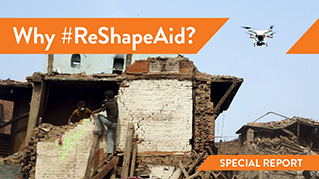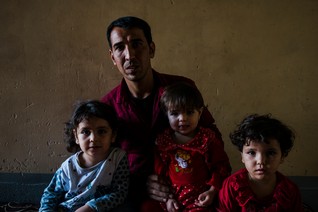PHOTOBLOG: Addressing Burkina’s challenges
Source: Plan International - Fri, 7 Jun 2013 13:15 PM
Author: By Françoise T. Kaboré, Plan International

-


Burkina Faso – literally meaning the “land of upright people,” is a landlocked nation of 18 million in West Africa. For the fifth poorest country in the world, Burkina’s problems have been exacerbated by recurring droughts and food insecurity. PHOTO: PLAN/Finbar O'Reilly
-


The country receives significant support from international humanitarian agencies in meeting some of its most pressing challenges. PHOTO: Plan International
-


Global child rights and humanitarian organisation Plan International is the single largest development sector partner of Burkina Faso accounting for more than 40 per cent of the entire foreign aid contributed by all non-governmental organisations.PHOTO: Plan / Jane Labous
-


Plan started its operations in Burkina Faso in 1976 and has continued to expand its development work reaching thousands of communities. In 2012 alone Plan worked with 2325 communities covering a population of over 1.5 million children. PHOTO: Plan / Peterik Wiggers
-


Plan’s main programme areas are focused on education, protection, survival and development, and household economic security. The organisation’s programmes have been devised to address key challenges faced by communities, particularly children. PHOTO: Plan International / Françoise T. Kaboré
-


As part of its global campaign – Because I am Girl, Plan is building residential education centres for girls from disadvantaged backgrounds. In one such facility in Kaya, 50 adolescent girls have been enrolled in post-primary education. Alima, a 13-year-old student says: “Had it not been for the education centre, I would have probably stayed at home or ended up getting forced into marriage. But, now I can realise my dreams.” PHOTO: Plan International / Françoise T. Kaboré
-


Household economic security remains one of the key challenges in Burkina Faso. Plan has initiated Village Savings and Loans project in all of its programme areas for women in the communities. The scheme allows members to make savings, borrow money at a very low interest rate for income generating activities and share profits collectively. PHOTO: Plan International
-


Since 2012, Burkina’s challenges have been exacerbated by influx of thousands of Malian refugees who have fled their homes following unrest in their country. Plan is supporting nearly 50,000 Malian refugees, which are mostly concentrated in the North Region of the country. PHOTO: Plan / Peterik Wiggers
-


Plan International CEO Nigel Chapman (far left in the picture) visited Goudebo camp in the last week of May. He says: “It is hard to see people in challenging circumstance like these. However, I am satisfied that Plan’s support is providing a major relief.” PHOTO: Plan International / Françoise T. Kaboré
-


In Goudebo, Plan is supporting over 10,000 refugees are living in a camp site. The organisation has constructed a school complex comprising 24 classrooms, latrine blocks and a water point. Abdoul, a sixth grade student says, “It is great to have a proper classroom where I can learn with my friends. Even though the lessons are demanding, I really enjoy being at school.” PHOTO: Plan / Françoise T. Kaboré







































